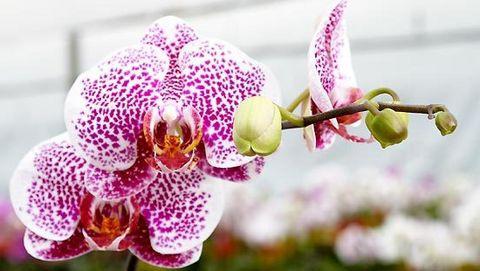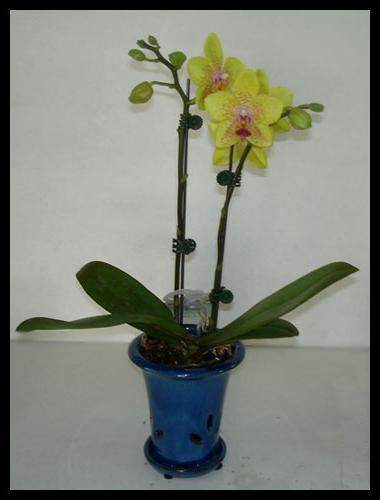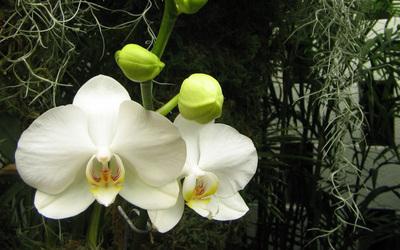How correctly and when to transplant an orchid
Orchids have recently gained special popularity in the world of indoor flowers as the most long-flowering, colorful and elegant floral plants.

They are easy to care for, they can pleasecolored flowers of the owner for almost a year. The most diverse colors of different varieties of these amazing plants are fascinated by their magic of every nature lover (see orchid pictures).

The question is when to transplant an orchid,interested in many flower lovers almost from the very moment of purchase of the plant. This exotic plant really needs to be transplanted, but somewhere in a year or two after the acquisition.
If you notice, the substrate of orchids bought inflower shop, consists of bark, but the earth soil itself is unacceptable to them. This is because epiphytic plants do not need an earth substrate, they receive nutrients with the help of long roots from water, which is watered with an orchid.
The question, when to transplant an orchid, is brewing inIn the case when the epiphytic roots no longer fit in the pot and strive to climb directly to the windowsill. Of course, it is necessary to transplant such a plant, but it is necessary to know how to do this in order not to harm it.
Rules for transplanting indoor orchids
Orchids in terms of transplantation are very fragile and badtransfer the change of "residence". To transplant a plant it is possible during its rest, when it has blossomed or before flowering. In different plants, the rest period is individual: it can be in winter and in autumn.

Many people ask when to transplant an orchid. Need flowers in the transplant every 2 years. They are planted in a new special substrate for epiphytes, consisting of bark, sawdust and other materials that retain moisture well.
These plants do not like overmoistening, so inpour water poured for 10-20 minutes, and then the leftovers are drained off. As a result of waterlogging, the roots can rot, causing various diseases and the appearance of insects.
For transplanting, take pots with holes in the bottom. They are necessary so that moisture does not linger.
After the plant is taken out of the pot, the roots should be completely shaken out of the substrate, straightened, even rinsed under a warm shower.

As the root system drops into a new potWe hold the flower with one hand, the other one is sprinkled with their substrate a little. Orchid should not lean on its side. At the same time, the substrate should not strongly press the roots, but promote air ventilation.
After planting, the orchid should not be watered. Following the recommendations of experienced florists, you need to stand planted plants for 2-3 days without water for better rooting. Since room orchids are very sensitive to changes, we try to adhere to all the above rules.
Orchid is an amazing plant. It blossoms inflorescences, one flower of which may last a month or even longer. On how and when to transplant an orchid, the lines of vegetation and the condition of the plant depend.
</ p>>







